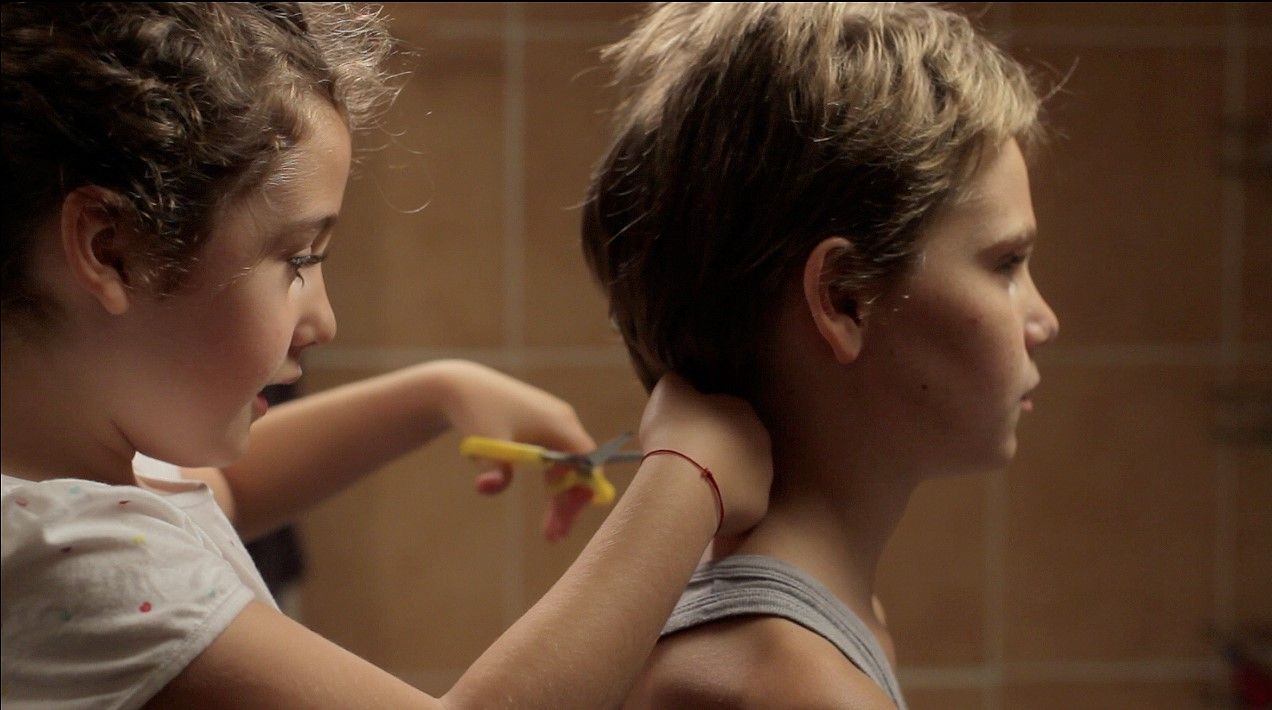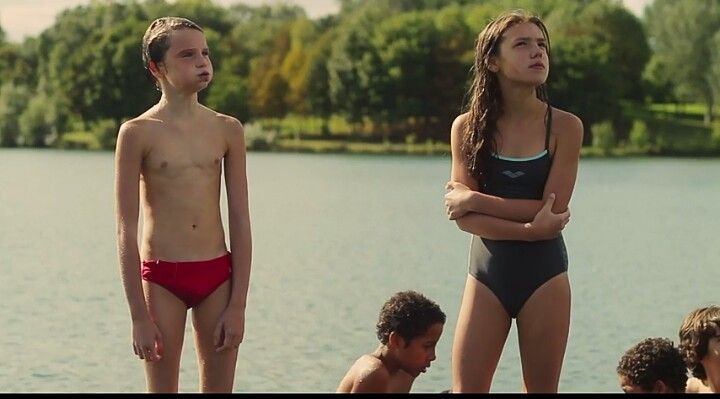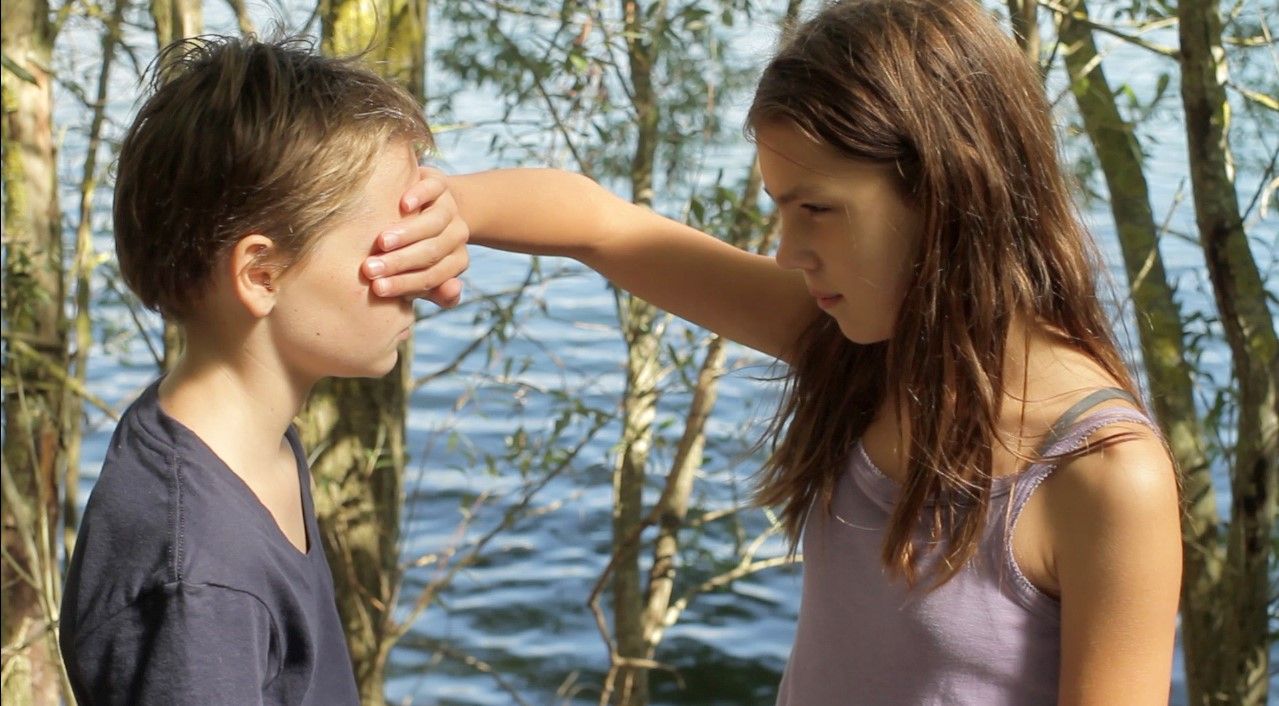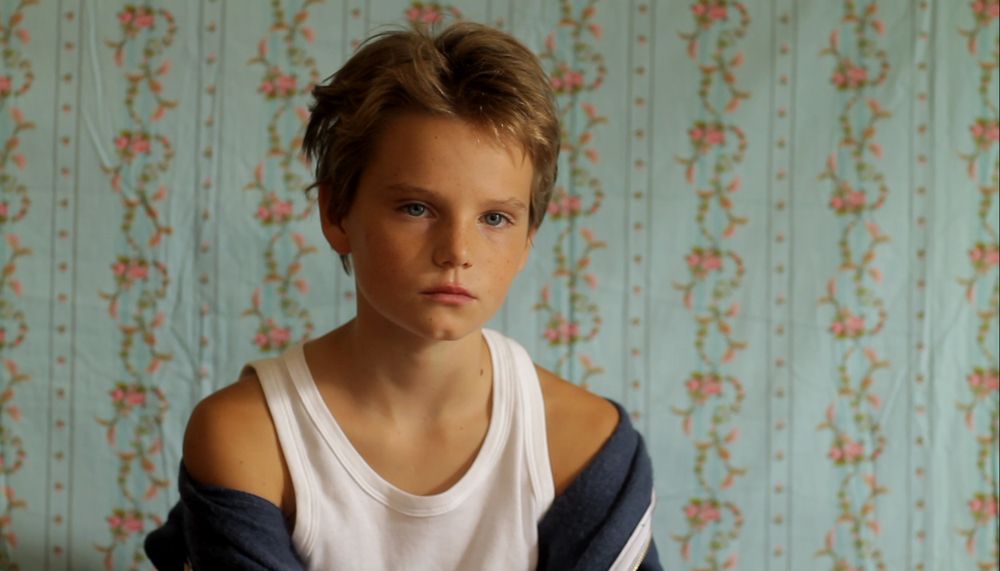By Milo Clenshaw, 3rd year Film & English
This LGBTQ+ History Month, our writers are looking at LGBTQ+ history and content in cinema. I honestly can't remember the first time I saw Céline Sciamma's 2011 film Tomboy, but it's been with me throughout some of the most formative years of my life, and all the highs and lows of discovering, coming to terms with and coming out as LGBT.
It's a pretty standard coming of age story; a Parisian family moves to a new neighbourhood where the eldest child Mikäel (Héran) spends a hazy summer trying to fit in with the local kids and experiencing a tentative first romance with his neighbour Lisa (Disson). Where this film differs, however, is that Mikäel's family knows him as Laure, the 10 year old girl.

What I really love about Tomboy as an example of LGBT cinema is that although the main character's gender exploration is what drives the plot, the film is interwoven with rich characterisation and the development of themes such as friendship and family relationships. It uses Mikäel/Laure's gender not as a prop or a gimmick but as a basis to delve into the complexities of developing an individual identity of one's own.
| Booksmart manages to make LGBTQ+ stories the norm without any ‘historic hardships’
Sciamma has said in an interview that she wanted to keep her central character open to interpretation, so that a heterosexual woman and a transgender man could both relate to the same childhood experience. In a time when identity politics are still a topic of great division, it is comforting to find a film which appears to deal so nonchalantly with the idea that gender, especially in youth, can be something fluid and transformative.
Héran's acting is remarkable for her age, and she plays the character with a nuance and depth that does credit to herself and Sciamma's direction. The film collected awards around the world, mainly at LGBT and independent film festivals, showing its story's reach beyond its nation.
The universality of childhood experience is the perfect canvas to foreground LGBT issues as it opens them up to understanding beyond the LGBT community itself, putting them into terms which can be understood by people from all backgrounds. We can all relate to that push and pull of childhood between the freedom to try out different aspects of identity and the societal pressures already present in our lives.
A heterosexual woman and a transgender man could both relate to the same childhood experience
Tomboy has all the hallmarks of a coming of age film, especially a French one; scenes either take place in warm green spaces where the kids run around the woods playing football and swimming, or in the family's small but homely tower block apartment where Mikäel sits quietly for a portrait by his little sister or is read books in lamplight by his father (Demy).
The slow, quiet tone of the majority of the film means that it is all the more jarring when things start to unravel for Mikäel; he fights one of the other boys for bullying his sister, and as a result gets in trouble.

His two worlds come crashing together when his mum (Cattani) discovers how he has been presenting himself to the neighbourhood kids. In a humiliating but tragically predictable scene he is forced into a dress to 'own up' to his friends, his mother saying: 'I don't care if you want to be a boy. But this can't go on'.
Mikäel's family is both supportive and resistive to his gender nonconformity. They stand by as he dresses in masculine clothes and cuts his hair, but when he goes to Lisa's and they play around with makeup his mother is delighted, encouraging him to present himself more femininely even as he hides his face. It's a telling insight into the gendered pressures adults impart onto children in subtle ways every day.
| On stage and on screen, Tarell Alvin McCraney is shining a light on African-American queerness
It is deliberately uncertain as to whether Mikäel is transgender or is just playing around with his identity with a new group of friends, but what is clear is that he knows it is something to be kept secret. In one scene which I find particularly touching, his six year old sister (Lévana) discovers what Mikäel has been doing, and after some quiet deliberation decides to support him, saying: 'a big brother is better than a big sister, anyway'.

My love of Tomboy comes partly from its role in my life as a way to reflect and understand things that I went through when I was younger, and partly because it is simply a beautifully crafted, funny and gentle film. It is becoming less the case now as LGBT stories become more accepted in the mainstream, but in 2011 there were relatively few films which dealt with issues like this in a nuanced and ultimately optimistic way.
Tomboy is a telling insight into the gendered pressures adults impart onto children in subtle ways every day
It was years after seeing it that I finally came out as transgender, but I am sure that in some small way this film helped me to feel less isolated in my difference and like gender did not have to have the defining role in my life that the world sometimes makes it feel like.
Featured: IMDb / Hold Up Films
What films have helped you come to terms with your own identities?







